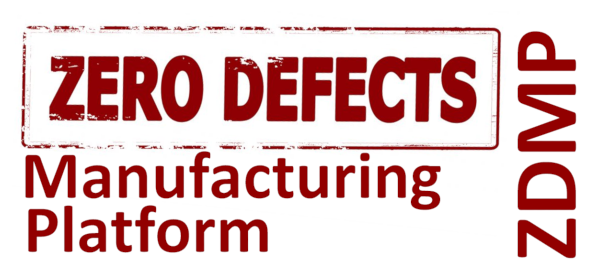
ZDMP launches an open call aimed at European SME software developers, tech companies and manufactures.
Further details can be found in the newsletters: Newsletter Ed. 2 / Open Calls Newsletter

ZDMP launches an open call aimed at European SME software developers, tech companies and manufactures.
Further details can be found in the newsletters: Newsletter Ed. 2 / Open Calls Newsletter
Our proposal INKplant is one of the projects selected by the EC within the call NMBP-21-20-Biological scaffolds for tissue regeneration and repair.
19 partners coordinated by PROFACTOR ready to change the future of regenerative medicine by 3D printed implants. Looking forward to start this exciting adventure together!
INKplant’s concept: from medical imaging to optimized patient-specific biological scaffolds
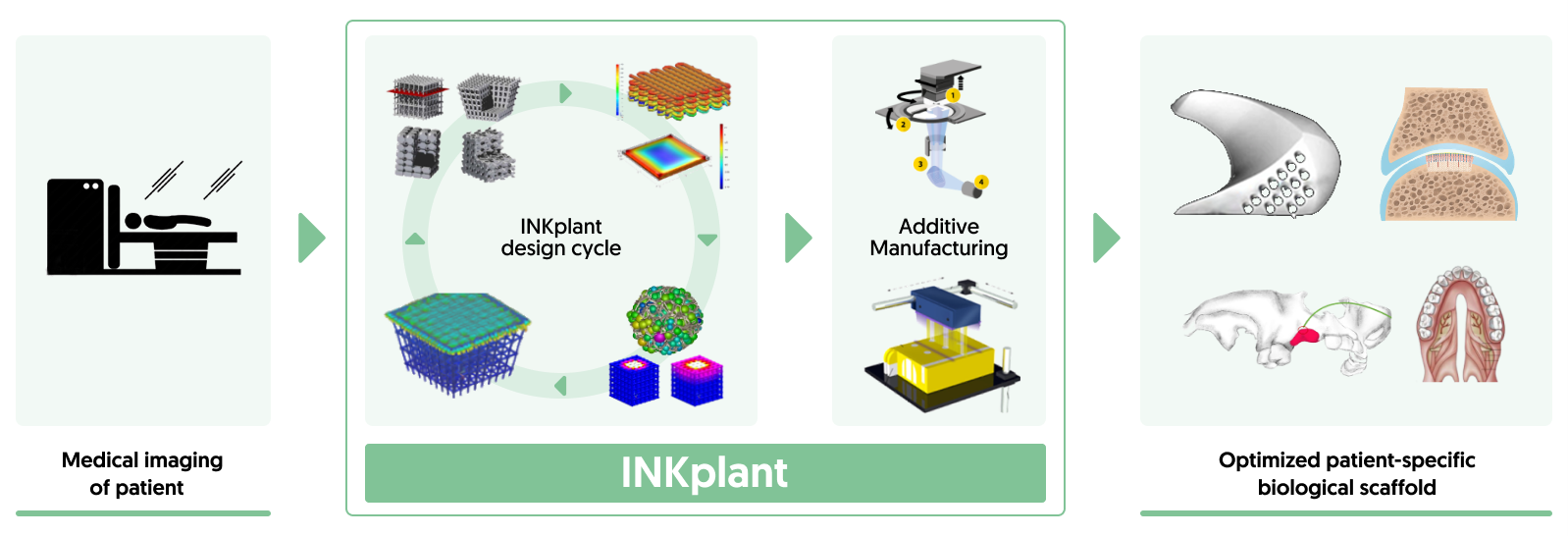
Projekt NABIAM vernetzt Kooperationspartner aus Oberösterreich und Tschechien für Innovationen
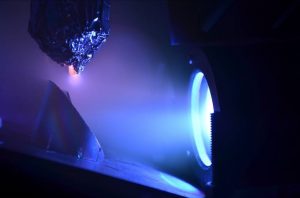
Kombinierte Magnetron/Surfatron-Abscheidung von TiO2 im metallischen Modus. © UniversitätBudweis/ Labor für Angewandte Plasmaphysik und Nanostrukturen
Kunststoff- und Medizintechnik gehören sowohl zu den Stärkefeldern Oberösterreichs als auch Südböhmens. In beiden Regionen gibt es in den Bereichen Nanotechnologie, Biosensoren und Additive Fertigung Experten in Forschung, Wirtschaft und Start-ups. Gemeinsam könnten sie in der Medizintechnik Innovationen auf den Markt bringen. Die Vernetzungs- und Kooperationskraft sind allerdings ausbaufähig, da die Akteure zu wenig über die in den Regionen vorhandenen Kernkompetenzen Bescheid wissen. Das vorhandene Know-how ist nicht barrierefrei zugänglich und besonders innovativen Start-ups fehlt der Zugang zu Hightech-Produktions- und Forschungsausstattung. Genau da will das Projekt NABIAM nun ansetzen und potenzielle Kooperationspartner für technologieübergreifende Gemeinschaftsprojekte mit dem Fokus auf medizintechnische Anwendungen vernetzen.
Neues Innovationsnetzwerk
NABIAM steht für Nanotechnologien, Biosensoren und Additive Manufacturing (Additive Fertigung). Die Idee zum Projekt hatte die Steyrer Innovations- und Forschungsschmiede PROFACTOR GmbH. „Wir haben sowohl in Oberösterreich als auch in Südböhmen exzellente Forscher und Technologien von internationalem Rang. Aufgrund der Sprachbarriere arbeiten wir bislang kaum zusammen. Das Projekt NABIAM wird uns helfen, Synergien zu nutzen, um gemeinsam höhere Schlagkraft und Sichtbarkeit zu erzielen“, sagt Andreas Pichler, Forschungs- und Entwicklungsleiter bei PROFACTOR.
Netzwerk der Standortagentur genutzt
PROFACTOR wandte sich mit der Idee für ein österreichisch-tschechisches Innovations- und Forschungsnetzwerk an die oö. Standortagentur Business Upper Austria. Projektmanagerin Ingrid Linhartova fand über das Netzwerk Europaregion Donau-Moldau den passenden tschechischen Partner. Über dieses Netzwerk bildete sich schließlich das NABIAM-Projektkonsortium. Projektleiter sind PROFACTOR und Business Upper Austria mit dem Kunststoff- und Medizintechnik-Cluster, Forschungspartner ist die Südböhmische Universität Budweis mit dem Institut für Angewandte Informatik. „Unternehmen in Südböhmen und Oberösterreich verfügen häufig nicht über das richtige Instrument, um F&E-Partner zu finden“, sagt Institutsvorstand Jakub Geyer, „dies führt zu einer verlangsamten Entwicklung und Innovation. Unser Projekt wird das Vernetzen von Organisationen erleichtern, um moderne Technologien und innovative Ansätze zu fördern.“
Innovation durch Kooperationen
Ziel des Projekts ist der Aufbau langfristiger Beziehungen zu relevanten Akteuren aus Forschung, Entwicklung und Wirtschaft in Oberösterreich und Südböhmen zu den Bereichen Polymerelektronik und Medizintechnik, mit Fokus auf die Themen Biosensoren, Nanotechnologie und Additive Fertigung (3D-Druck). Dieses Innovationsnetzwerk wird die Wettbewerbsfähigkeit und Innovationskraft der beiden Projektregionen stärken. „Gepaart mit einem Kompetenz-Mapping für Polymerelektronik und Medizintechnik sollen sich in Zukunft rasch Projektkonsortien zu konkreten Themenstellungen bilden. Ganz nach unserem Motto: Innovation durch Kooperation“, sagt Wolfgang Bohmayr, Manager des Kunststoff-Clusters. Die Finanzierung erfolgt über regionale, nationale und europäische Förderprogramme. NABIAM erhielt aus dem EU-Programm INTERREG Österreich – Tschechische Republik bzw. dem Fonds für regionale Entwicklung der Europäischen Union eine Förderung in Höhe von 85 Prozent des Projektvolumens von 216.000 Euro.
Innovative Methoden
NABIAM erhebt nun die Forschungsschwerpunkte sowie den Forschungsbedarf in den beiden Regionen und visualisiert die Kompetenzen sowie Forschungsinfrastruktur in einer Technologie-Roadmap sowie einer Kompetenzlandkarte. Danach wird ein offener Innovationsprozess entwickelt. NABIAM nutzt dafür innovative Konzepte wie Design Thinking oder Matchmaking Events, angelehnt an das Konzept eines Innovation Hubs. Unternehmen, Universitäten, Forschungseinrichtungen und Cluster soll so der Zugang zu den neuesten Forschungsergebnissen, Fachkenntnissen und Technologien erleichtert werden. „Die Medizintechnik ist eine Schlüsselkompetenz sowohl Oberösterreichs als auch Südböhmens. Mit NABIAM können wir Forschung und Entwicklung in der Branche vorantreiben und so zu innovativen, individuellen Lösungen für Patienten kommen“, betont Nora Mack, Managerin des Medizintechnik-Clusters.
Weitere Informationen zu Veranstaltungen, die im Rahmen von NABIAM organisiert werden, finden Sie auf der Projektwebseite www.nabiam.eu
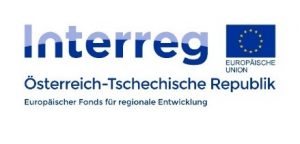
Kofinanziert aus Mitteln des Europäischen Fonds für regionale Entwicklung.
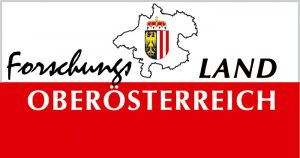
![]()
Dieses Projekt wird gefördert aus Mitteln vom Bund und Land Oberösterreich.

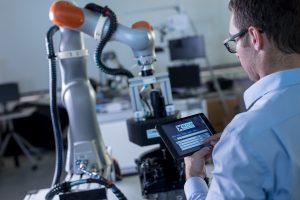
Zusammen mit der WKO Oberösterreich bieten wir auch 2020 für KMUs wieder im Rahmen der TIM – Initiative unsere BETINA Beratungsworkshops an.
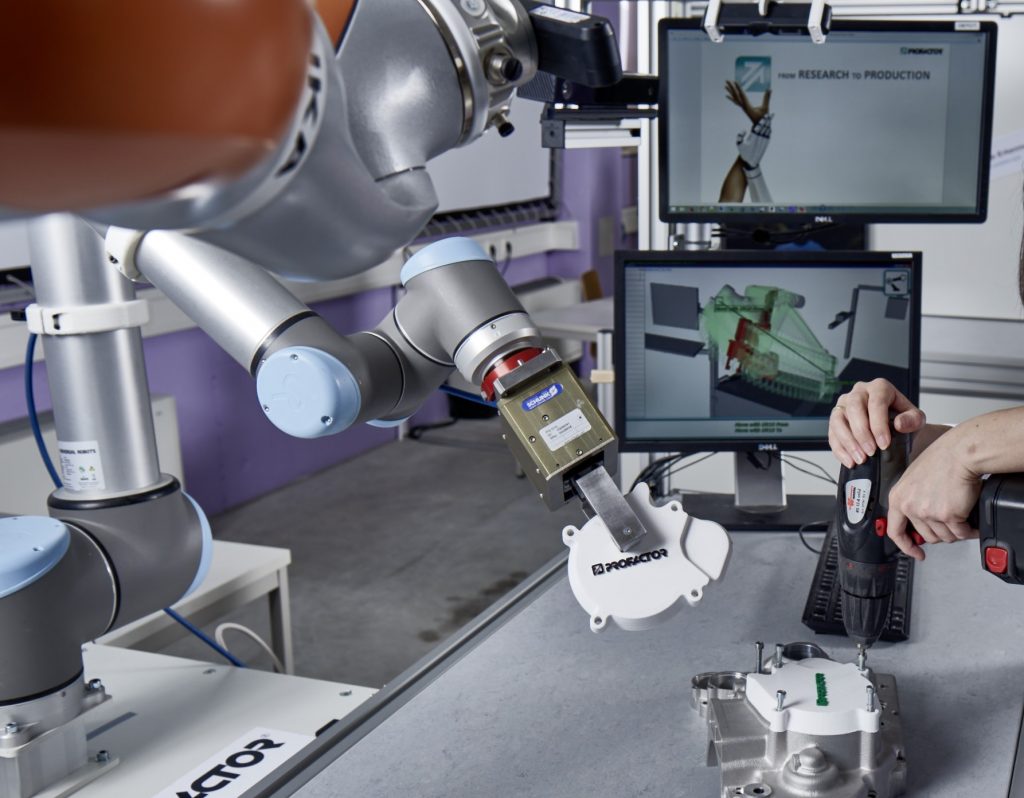
In Zusammenarbeit mit Haba Verpackung ist nun auch Profactor ein Teil des Integratoren-Netzwerks. Profactor nutzt bereits seit vielen Jahren die Roboter von Universal Robot im eigenen Forschungsbetrieb und für Kundenlösungen und kann hier auf eine umfassende Expertise zurückgreifen.
Als Systemintegrator erweitern wir damit unser Leistungsspektrum und können verstärkt flexible und individuelle Roboteranwendungen für unsere Kunden bereitstellen.
Link: Universal Robot – Roboterarme

ZDMP (Zero Defaults manufacturing Platform) is a European research project that intends to provide software solutions to improve current industrial processes and product quality modules ensuring manufacturers are enabled for a Zero Defects environment. Its 1st Newsletter was just published: https://www.zdmp.eu/newsletters. Please take a look at it!
International Jury awarded 10 ARTISTS to re-think fashion together with scientists
Linz. During the first call of the EU-funded project Re-FREAM, 78 applications were submitted at the official STARTS platform aiming to receive 55.000 EURs funding. In a first open call Re-FREAM were looking for outstanding concepts to three research challenges: from analog to connected, from 2D to 3D and from linear to sustainable circular systems. On July 10, the final decision was made by an international jury of designers, researchers, creators and founders. These ten awarded artists will work together with scientists on their concepts to re-define fashion and will be professionally support in three hubs (Linz, Valencia and Berlin) as part of a co-creation process. Re-FREAM is proud to present our co-creators and their concepts:
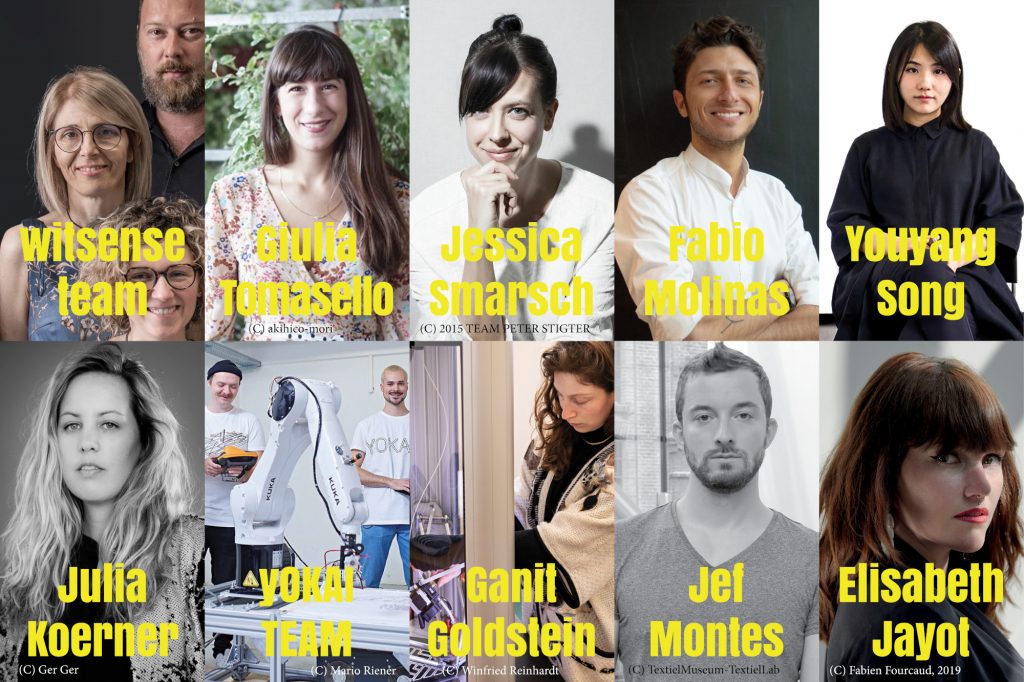 from analog to connected (HUB Berlin):
from analog to connected (HUB Berlin):1. Constructing Connectivity by Jessica Smarsch:
Constructing Connectivity aims to disrupt the standards of healthcare with design sensitivity. Dignity, comfort, beauty, and creativity are seldom on the product requirements lists when developing a medical device. The goal of Constructing Connectivity is to deliver an engaging rehabilitation experience to stroke patients while also improving recovery and enhancing quality of life. By the end of this project we will create a functioning manufactured prototype that allows stroke patients to engage in creative, multi-sensory rehabilitation exercises.
2. Alma by Giulia Tomasello
Alma is a non-invasive wearable biosensor designed for the detection of vaginal infections. The project aims to develop a less conspicuous, wearable system that is low cost and reusable, capable of detecting pH and lactic acid from vaginal secretions and gather data that can be used to reconstruct an individual’s physiological profile. These data will be interfaced with a mobile app designed to monitor the vaginal chemistry and generate educational awareness. Alma is designed to empower women to become familiar with their own bodies and active patients, more willing to seek healthcare professional advice when necessary and break some of the taboos that are still attached to gynaecological health. Alma is in collaboration with scientists T.Busolo, J.Che and M.Calabrese.
3. LOVEWEAR by witsense team
LOVEWEAR is a smart underwear that helps people of all abilities to self-explore and enhance their own intimacy and sexuality. Disabled sexuality is often neglected to release carer and families from uncomfortable responsibilities, which pose moral and ethical questions. Whether the individual is deprived of its natural appetite or its emotional and sentimental implications, what is really missing is the self-consciousness and the awareness towards his own body. LOVEWEAR want to empower the wearer through a tactile experience achieved by Inflatable inserts, activated within the underwear linen, through the interaction with a connected ‘console’ pillow.
4. Digital Vogue – Between Synthetic and Organic Processes by Julia Körner:
The project Julia Koerner is proposing for Re-FREAM is focused on the 2D to 3D relationship in 3D-Printed Fashion. The research focuses on digitally translating natural patterns into algorithms on the computer. It explores digital pattern design and multi-colour 3D printing on fabric, inspired by microscopic natural artefacts.
5. WeAreAble by Ganit Goldstein
The digital revolution is part of our body, it is our second skin. What would happen if we, as a human factor, will interfere with the code of the digital work? this is exactly the subject of my project. ‘WeAReABle’ project deals with the making process of customized fashion designs. It is based on 3D body scans and 3D parametric codes combined with multi-color 3D printing directly on fabric.
Goldstein considers the human body as a platform for innovation, focusing on ‘smart textiles’ development. The project Goldstein is working on examines the border between future and tradition, redrawing the boundaries between hand-made and ‘machine-made.’ By using parametric design software and changing parameters codes, the outcome consists of outfits that are fit-to-measure to the exact curves and figure according to unique body shape. By using the technology of 3D printing, we-are-able to print this data, and make a textile that ‘remembers’ the 3D properties of a specific body.
6. A 3D-based design process for the development of garments with a robotic based additive manufacturing method by Michael Wieser (Yokai Team)
Bringing clothing production back to Europe is made possible through the creation of a new digital based process for local customization and garment production: by developing completely new methods for fashion design, like a whole 3D process that spans from 3D design, flattening, 3D seams to 3D presentations, the yokai team focuses on the production part, where there is still a huge lack of innovation. Our long term goal is to build a robot based automated manufacturing system, which enables the production of customised clothes.
7. Marinero by Jef Montes
Inspired by the contrast of the sea and plastic pollution. Marinero is the first project of Studio Adaptive Skins. The focus of Marinero is to create an architectural blueprint that transforms organically over the course of time due to different meteorological conditions. The vision is to design a new kind of production system that results into adaptive garments that grow with us individually. Plastic will be collected from the sea and transformed into new threads. These plastic threads will be used in combination with the natural fibers from sea based materials (horizontal versus vertical).
8. Cooking New Materials by Youyang Song
Cooking new materials is an independently developed technique which aims to process biowastes into a soft but yet robust leather-like material. Banana and orange peel or soy-milk are combined with a natural binding agent as the substrate. The resulting composite is fully biodegradable and can be easily reused after the re-cooking process. It is a 100% biodegradable, zero waste natural product. Moreover, the bio-material provides similar toughness, durability and water resistance as normal leather material.
9. Leather for Vegetarians by Fabio Molinas
“Leather for Vegetarians” is a material that imitates the leather but it is created from cork powder, a residue originated when sanding pieces of cork in the process of manufacturing the bottle caps, widely used in wine.
10. FRAGMENTS GARMENTS by Elisabeth Jayot
The Fragments Garments propose to relocate within small urban manufacturing units akin to Fablabs, the production of garments, – moreover designed seamless and modular -, based on a worldwide digital pattern trade. We would gather in one place a locally-sourced sustainable fabric library, a co-creation customer service, an on-demand laser-cutting of customized spare parts to be manually assembled by the user, and a shop offering ready-to-wear second hand clothes made of recombined used spare parts collected there. This project adds a 4th dimension to the classic Reduce, Repair, Recycle concept by involving the consumer who can easily dismantle and transform clothes according to changing trends, needs or sizes, thus leading to a longer life-span.
The artists will be presented on September 6, 2019 within the STARTS DAYS of the Ars Electronica Festival.
Re-FREAM invites all artists and designers to submit their innovative concepts in the second call in 2020. The call will be published on July 1, 2020.
About the project:
Re-FREAM is EU-funded project with 12 partners under the umbrella of STARTS and an invitation to artists and designers to re-think the future of fashion with state-of-the-art production technologies. Re-FREAM gives fashion artists and designers an extraordinary opportunity to have access to an unknown world: new spaces, new materials, new processes, new professional profiles.
STARTS
Re-FREAM is part of the STARTS Family. STARTS (Science, Technology & the Arts) is an initiative of the European Commission. Its purpose is to support collaborations between artists, scientists, engineers and researchers to develop more creative, inclusive, and sustainable technologies. Re-FREAM is the lighthouse project for artistic exploration of technologies for fashion.
Re-FREAM is funded by the Europen Union’s Horizon 2020 research and innovation programme under the grant agreement No. 825647,
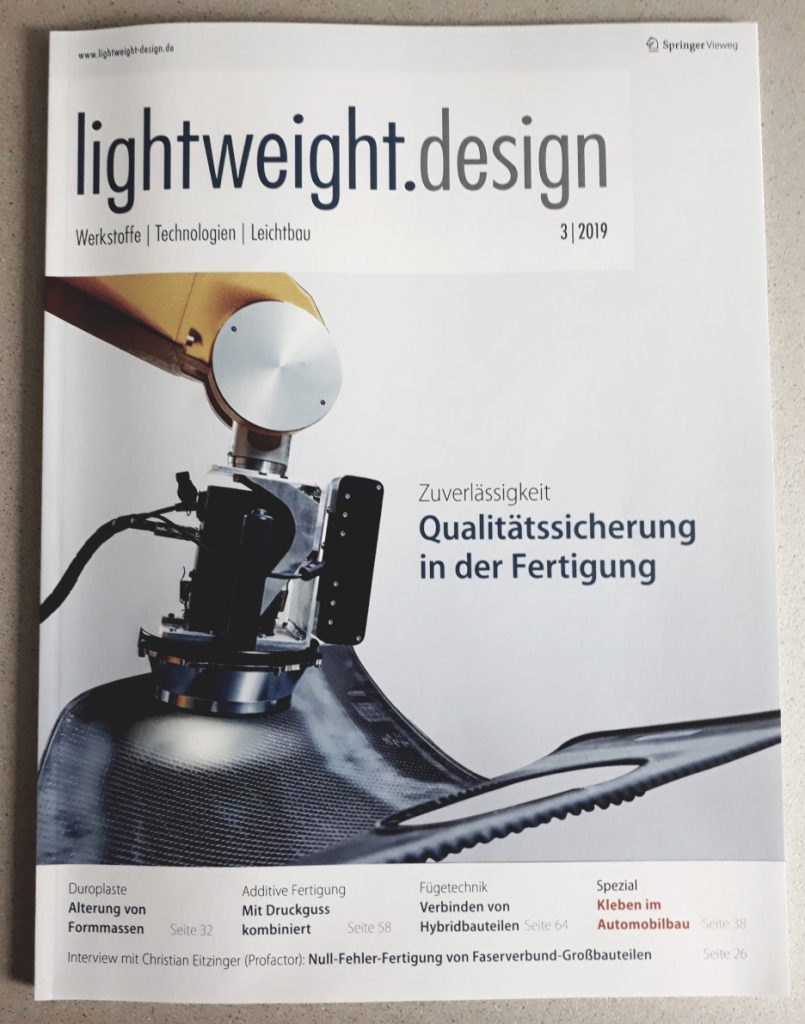
Our F-Scan is on the current cover page of the #lightweight.design magazine (springer Verlag). #FScan is a sensor technology that allows the accurate measurement of fibre angles on #composite parts. The technology can be used for different types of materials (carbon, glass) and also during different stages of the production process (raw material, pre-form, clear-coated part). Aside from measuring the orientation it allows the detection of typical defects such as inclusions or distorted fabric.
F-Scan was award with the JEC Innovation Award within the project ZAero.
The current issue of lightweight.design can be find here:
https://www.springerprofessional.de/en/lightweight-design/3404430
PROFACTOR has succesfully implemented inspection systems for metallic parts as well as composite parts in industry. Our powerful tools provide a new perspective on your production
and take you to the next level: Evolve from sorting out defective parts to avoid defects by closing the feedback loop in your production. PROFACTOR supports every step of your way, with undivided focus on your goal: Zero defects.
Folder: Zero Defect Manufacturing: Inspection systems
Folder: Zero Defect Manufacturing: Sensors with technical information
The JEC Innovation Awards reward composites champions, based on criteria such as partner involvement in the value chain, technicality or commercial applications of innovations. The JEC in Paris is the world’s largest composites exhibition. Ten composite innovation champions selected among 30 finalists, from more than a hundred entries, were awarded
The project ZAero coordinated by PROFACTOR won the JEC innovation award in the category aerospace processes.
The project consortium developed technologies for zero defect manufacturing of large composite parts.
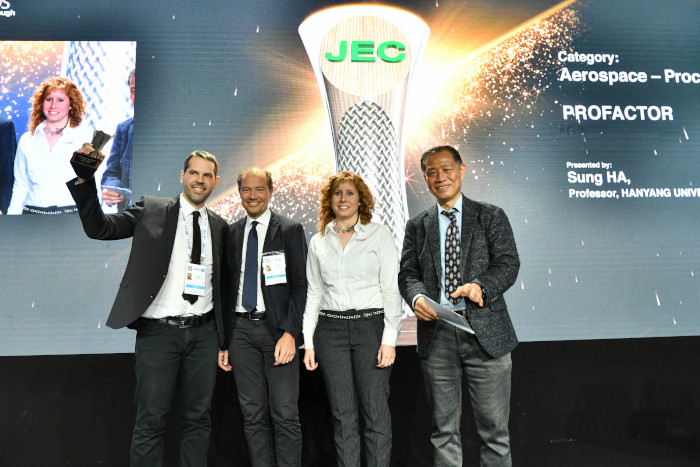
Zero-defect manufacturing of composite parts
In the aerospace industry, very large components (e.g. wing covers) are made of carbon fiber composite materials. Different challenges are related to the processing of such materials. The complexity that comes with carbon fiber composites often leads to anomalies and defects during production. The EU project ZAero developed intelligent inspection technology to detect problems in production at an early stage. The ZAero project aims for 30-50% boost in productivity via inline AFP and ADMP inspection, simulated part performance and decision support tools. The technology will be showcased at the JEC (Hall 5, Booth S66).
Very high quality standards have to be met in the aerospace industry. In order to guarantee production of defect-free components, a great deal of effort needs to be put into quality control. Lightweight carbon fiber reinforced plastics (CFRP) components are nowadays largely used in the aerospace industry. Production of such parts requires multiple stages of processing, each of which needs to be done with great care.
Continuous process monitoring for zero defects
In order to avoid defects during production, the EU project ZAero developed technologies for consistent monitoring of production. This is based on sensors for fiber orientation measurement and 3D profile scanning that perform inline monitoring during the lay-up process. In addition to this, data from the following production stages (infusion, curing) is collected in a manufacturing database. This database represents a “digital twin” of the real part as manufactured. Intelligent data processing and mechanical simulation provide information about the severity of defects.Logistical simulation delivers information about the part flow and overall production performance. This enables a global view on the production and reveals how defect rates and re-work decisions affect, for example, completion time of a specific order.
Industrial reference implementation
Installation of monitoring systems into industrial environments were done at the facilities of Danobat and FIDAMC. The deployed sensor systems were demonstrated to work well in the respective environments. Data collection, simulation, and decision support modules were successfully demonstrated. Experiments showed that the future production of up to 60 passenger planes per month will be possible with the technologies developed within the project.
PROFACTOR is an Austrian research company located in Steyr and focuses on developing new methods for integrated production technologies. In the field of composite part production, the technological focus is on zero defect manufacturing. PROFACTOR offers sensor systems for fibre orientation measurements, AFP and ADMP monitoring, surface inspection and thermography. Visit us at booth S66 in hall 5.
ZAero Zero-defect manufacturing of composite parts in the aerospace industry
Coordinator PROFACTOR GmbH
Partners: Airbus Defence and Space GmbH, Dassault Systèmes SE, M Torres Diseños Industriales SA, IK4 – IDEKO S Coop, Danobat S Coop, FIDAMC
Duration: 2016 – 2019
Funding: EU Horizon 2020
Website: www.zaero-project.eu
 This project has received funding from the European Union’s Horizon 2020 research and innovation programme under grant agreement No 721362.
This project has received funding from the European Union’s Horizon 2020 research and innovation programme under grant agreement No 721362.
The project ZAero coordinated by PROFACTOR was nominated as one of the finalists of the JEC innovation award.
The project consortium developed technologies for zero defect manufacturing of large composite parts.
Visit PROFACTOR at the JEC 2019 in Hall 5, Booth S66. The JEC takes place from March 12-14, 2019 in Paris.
Zero-defect manufacturing of composite parts
In the aerospace industry, very large components (e.g. wing covers) are made of carbon fiber composite materials. Different challenges are related to the processing of such materials. The complexity that comes with carbon fiber composites often leads to anomalies and defects during production. The EU project ZAero developed intelligent inspection technology to detect problems in production at an early stage. The ZAero project aims for 30-50% boost in productivity via inline AFP and ADMP inspection, simulated part performance and decision support tools. The technology will be showcased at the JEC (Hall 5, Booth S66).
Very high quality standards have to be met in the aerospace industry. In order to guarantee production of defect-free components, a great deal of effort needs to be put into quality control. Lightweight carbon fiber reinforced plastics (CFRP) components are nowadays largely used in the aerospace industry. Production of such parts requires multiple stages of processing, each of which needs to be done with great care.
Continuous process monitoring for zero defects
In order to avoid defects during production, the EU project ZAero developed technologies for consistent monitoring of production. This is based on sensors for fiber orientation measurement and 3D profile scanning that perform inline monitoring during the lay-up process. In addition to this, data from the following production stages (infusion, curing) is collected in a manufacturing database. This database represents a “digital twin” of the real part as manufactured. Intelligent data processing and mechanical simulation provide information about the severity of defects.Logistical simulation delivers information about the part flow and overall production performance. This enables a global view on the production and reveals how defect rates and re-work decisions affect, for example, completion time of a specific order.
Industrial reference implementation
Installation of monitoring systems into industrial environments were done at the facilities of Danobat and FIDAMC. The deployed sensor systems were demonstrated to work well in the respective environments. Data collection, simulation, and decision support modules were successfully demonstrated. Experiments showed that the future production of up to 60 passenger planes per month will be possible with the technologies developed within the project.
PROFACTOR is an Austrian research company located in Steyr and focuses on developing new methods for integrated production technologies. In the field of composite part production, the technological focus is on zero defect manufacturing. PROFACTOR offers sensor systems for fibre orientation measurements, AFP and ADMP monitoring, surface inspection and thermography. Visit us at booth S66 in hall 5.
ZAero Zero-defect manufacturing of composite parts in the aerospace industry
Coordinator PROFACTOR GmbH
Partners: Airbus Defence and Space GmbH, Dassault Systèmes SE, M Torres Diseños Industriales SA, IK4 – IDEKO S Coop, Danobat S Coop, FIDAMC
Duration: 2016 – 2019
Funding: EU Horizon 2020
Website: www.zaero-project.eu